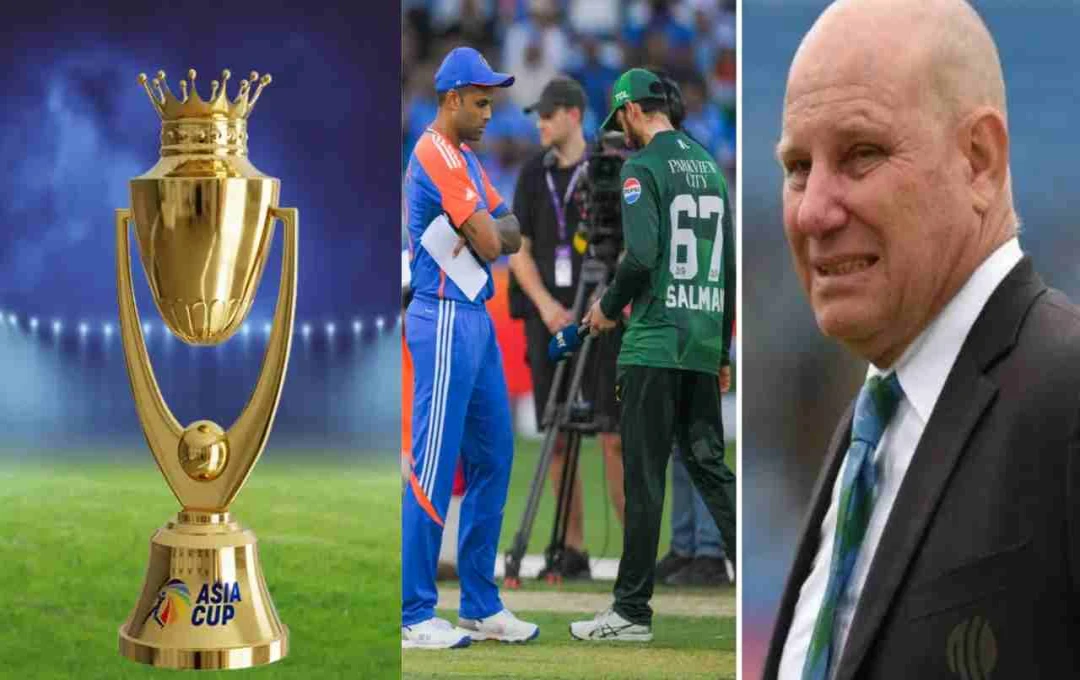If ever there was a masterclass in self-sabotage, the Pakistan Cricket Board (PCB) has delivered it at the Asia Cup in Dubai. Not content with being humiliated on the field by India, they have now engineered a scandal off the field that could cost them not just money and reputation but possibly their entire future in world cricket. The trigger? A childish protest that India’s Suryakumar Yadav declined to exchange pleasantries with Pakistan’s captain after the toss and the match. Customary handshakes may be traditional, but they are not compulsory. The ICC Code of Conduct only invokes “conduct contrary to the spirit of cricket” under Article 2.8 when a player’s action is demonstrably offensive or abusive. A mere refusal to shake hands doesn’t come within sniffing distance of that threshold. Yet the PCB, egged on by Islamabad’s political bosses, turned this trivial non-event into an official complaint. That, however, was just the warm-up act. The real scandal is that Pakistan’s team management, during their heated exchange with ICC match referee Andy Pycroft, allegedly recorded the proceedings on a mobile phone—and the video has now gone viral. That reckless stunt is a direct violation of ICC rules. The Anti-Corruption Code expressly prohibits any “unauthorized recording or dissemination of match-related discussions,” and the Code of Conduct makes clear that comments or actions “detrimental to the interests of the game” are punishable offences. Add to that the ICC’s own Membership Agreement, which obliges every board to ensure its players and officials protect the integrity of the game, and you have a trifecta of breaches that no amount of Pakistani denial can wish away. The possible consequences are devastating. Under the ICC’s disciplinary framework, sanctions include heavy fines, forfeiture of match fees, deduction of points, or suspension of the individuals involved.

But it doesn’t stop there. The ICC’s membership criteria allow suspension or even expulsion of a national board that fails to uphold cricket’s integrity. Translated into real terms, that could mean a five- to ten-year ban on Pakistan from ICC events, including the upcoming ODI World Cup and T20 World Cup. For a board already bankrupt and dependent on ICC revenue shares, such a ban would be sporting euthanasia. Yet, instead of introspection, Pakistan does what it always does: wallow in denial and propaganda. Ministers spew venom. Former cricketers like Asif Iqbal and Shahid Afridi twist reality, bizarrely claiming India “lost both the battle and the match,” when the facts—on the border under Operation Sindoor and on the field with a seven-wicket defeat—say the exact opposite. Pakistan’s disease is not losing; it is refusing to accept it. The contrast could not be sharper. The BCCI resisted populist calls to boycott the Asia Cup match, knowing that such a move would have gifted Pakistan free points. Instead, India let the Men in Blue do the talking on the pitch. Suryakumar Yadav’s side crushed Pakistan in the group game, just as India’s armed forces humbled them militarily days earlier. While India shows discipline on both the battlefield and the cricket field, Pakistan resorts to petulance and rule-breaking. Now the ball is in the ICC’s court. If its rules are to mean anything, Pakistan cannot be allowed to wriggle out of this mess with a token fine. Secretly recording an ICC official and disseminating it online undermines the very heart of cricket’s credibility. Anything short of exemplary punishment will only embolden rogue boards. If cricket is to remain a gentleman’s game, Pakistan has no business at the table. And if the ICC has any backbone, it must act with the full force of its own rulebook. The world is not watching the handshake; it is watching whether the ICC itself dares to shake off Pakistan’s reckless blackmail.





